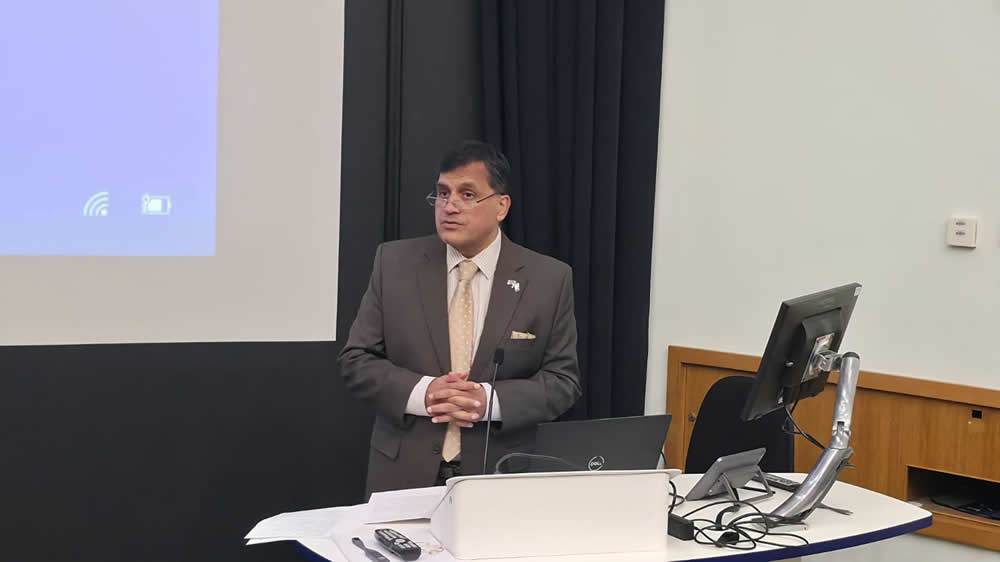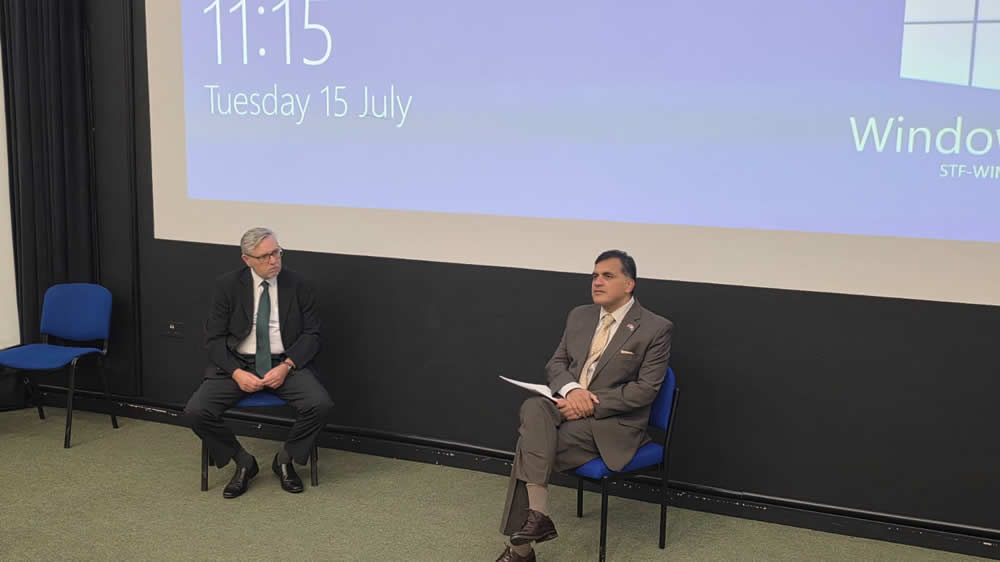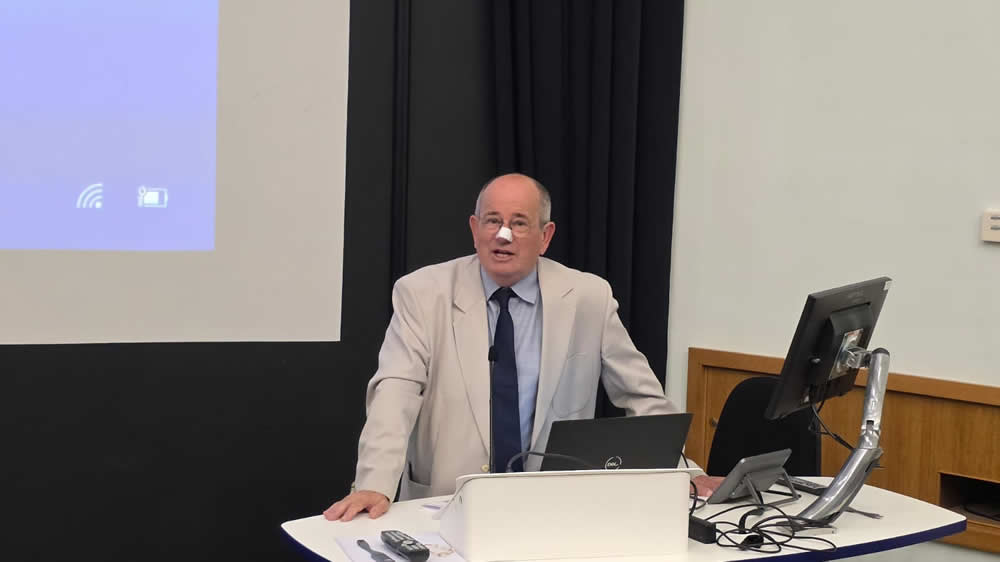Dr. Mohammad Faisal, Pakistan’s High Commissioner to the United Kingdom, had the privilege of delivering a keynote address at the University of Buckingham

Dr. Mohammad Faisal, Pakistan’s High Commissioner to the United Kingdom, had the privilege of delivering a keynote address at the University of Buckingham on “India-Pakistan Strategic Rivalry: A Regional Security Analysis”, organised by the Centre for Security and Intelligence Studies (BUCSIS) at the University.
The High Commissioner addressed a diverse audience comprising faculty members, researchers, students, media representatives, and academics from the University of Buckingham. An engaging Q&A session followed the Talk.
Addressing the forum, Dr Mohammad Faisal drew attention to the Pehalgam incident of April 22, 2025, resulting in the unfortunate loss of 26 tourists in the Indian Illegally Occupied Jammu and Kashmir (IIOJK). 
The High Commissioner said that Pakistan unequivocally condemned the violence, paid condolences and offered an independent international investigation. India, however, responded with unfounded allegations, unilateral actions such as the suspension of the Indus Waters Treaty (IWT), and unprovoked military aggression.
Dr Mohammad Faisal underscored that Pakistan exercised its right to self-defence with measured and proportionate responses. He highlighted the global concern regarding the potential escalation of the conflict, which could have far-reaching consequences for the region and the world, at large.
Pakistan welcomed and accepted the ceasefire mediation facilitated by the United States and other friendly nations as Pakistan had always advocated for peace and development in the region, he continued.
The High Commissioner underscored that the Jammu and Kashmir dispute remains the central issue in Pakistan-India tensions. He reiterated Pakistan’s principled stance advocating for a peaceful resolution in accordance with United Nations Security Council resolutions and the aspirations of the Kashmiri people.
Furthermore, he condemned India’s attempts to weaponise water resources, in violation of the Indus Waters Treaty, and emphasised that such actions jeopardise Pakistan’s agriculture-dependent economy and regional stability.
Reaffirming Pakistan’s frontline role in the global war on terror, the High Commissioner cited Pakistan’s sacrifices and counter-terror operations while exposing India’s involvement in sponsoring terrorism and disinformation campaigns targeting Pakistan.
The High Commissioner reaffirmed Pakistan’s commitment to peace, dialogue, and responsible engagement, advocating for cooperation over confrontation. He emphasised that South Asia’s security has global implications, and the international community must play its role in preventing escalation between two nuclear-armed nations.
Concluding his talk, Dr Mohammad Faisal outlined Pakistan’s vision of a peaceful and prosperous South Asia grounded in dialogue, connectivity, and regional cooperation. Initiatives such as the China-Pakistan Economic Corridor (CPEC) and the Kartarpur Corridor serve as pathways to shared peace and progress.
At the outset, the High Commissioner expressed his gratitude to the University of Buckingham and the South and South East Asia Security Research Centre (SSEASRC) for hosting a critical discussion on the evolving security landscape of South Asia, particularly the Pakistan-India relations.
In his concluding remarks, Vice-Chancellor Professor James Tooley said that the conflicts between India and Pakistan affect the global order and bringing up these discussions at the University at Buckingham is timely and significant.
Welcoming the High Commissioner Prof Julian Richards, Director, Centre for Security & Intelligence Studies, University of Buckingham, United Kingdom said that such important discussions should continue to be part of academia at the University of Buckingham.
The talk was moderated by Dr Muhammad Tahir, a research fellow at the Centre for Security and Intelligence Studies (BUCSIS).
Published on : July 15, 2025
Last Update : July 15, 2025



